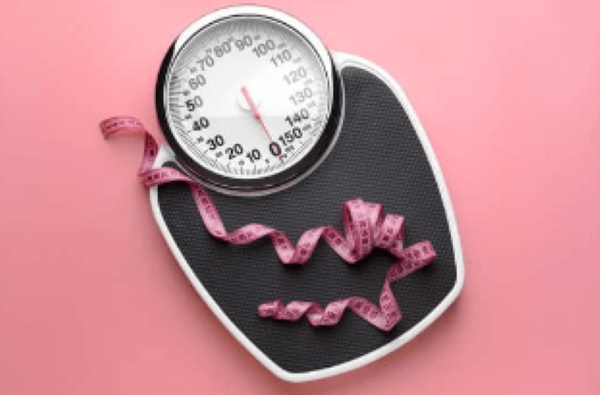How to manage weight gain around the menopause
Have you noticed your jeans fitting tighter lately, even though your diet and exercise routine hasn’t changed? If so, menopause could be the culprit. This stage of life can bring about weight changes due to hormonal shifts. But don’t worry – understanding these changes empowers you to take control. Let’s explore how to manage weight gain around the menopause.

Why Does Weight Increase During Menopause?
During menopause, oestrogen levels decrease significantly. This hormonal change leads to several physiological effects:

How Common is Weight Gain During Menopause?
Weight gain is one of the most common side effects of perimenopause and menopause, affecting around half of all women. Research shows that:
Why Managing Weight During Menopause Matters
We know from research that excess weight can increase the risk of certain health conditions such as:
oestrogen reduction is linked to a higher risk of cardiovascular issues including high blood pressure, high cholesterol, heart attacks and strokes
increased weight can increase insulin resistance, increasing the risk of developing type 2 diabetes
lower oestrogen levels can affect bone health, increasing the risk of osteoporosis
increased weight is linked to an increased risk of several types of cancers, including breast cancer
Beyond health, weight can impact our confidence, how we feel and what we can do. However, with the right strategies, you can manage your weight effectively, protect your health and live a fulfilling life.
Let’s explore the aspects of our lifestyle when thinking about how to manage weight around the menopause.

Effective Strategies for Managing Weight During Menopause
As your metabolism slows and your body changes, adjusting your diet is crucial. There is no one diet for menopause and everyone will have different needs. Key things to focus on include:
Start with 1-2 changes at a time and focus more on what you can add into your diet. If you’d like more guidance with evidence-based nutrition advice tailored to you, alongside support to make sustainable changes to your habits book in for a nutrition consultation at Willow with me here.
Regular movement is also key for managing weight and the benefits go beyond weight loss:

It is recommended that adults aim for 150 minutes of moderate intensity exercise each week or 75 minutes of vigorous activity each week, or a combination of the two.
Moderate activity is any movement that gets your heart rate up but you’re still able to hold a conversation. Everyone has different fitness levels and abilities, and this will change over time. Start small, build up over time and listen to your body.
Movement could be a walk, a cycle, running, swimming, dancing, fitness classes, sports. But it could also be chair exercises, gardening, taking the stairs or housework. Anything that gets you moving! The most important thing is to find movement that you enjoy so that you’re more likely to stick with it long term.
It’s also essential to do resistance exercise at least 2-3 days each week, especially for women during menopause. Strength training helps to keep bones strong and retains and builds muscle mass. Examples include:
Find out more about exercise & bone health.

Sleep is fundamental for our health. Think about a time you’ve had a bad night’s sleep. Now think about the following day. Did you:
Crave high energy, sugary foods?
Struggle to make healthier choices?
Have the energy to move?
Feel stressed, low or fed up?
These are just some of the knock-on effects of poor sleep which impact eating, movement and mood which in turn influence our habits and our weight.
Equally, stress can also negatively impact our weight and ability to make lifestyle changes. We can’t always remove or avoid stress, but we can implement strategies to help us manage stress better and improve our emotional wellbeing such as movement, mindfulness or meditation.
If sleep or stress is something that you’re struggling with, it may be worth focusing on these first and seeking some support.
For additional support in managing sleep or stress, Willow’s psychotherapist Kate offers CBT therapy.
Get Expert Support at Willow Health for Managing Weight
Navigating weight management during menopause can be challenging, but you don’t have to do it alone. At Willow Health, our specialist dietitian Emily offers personalised nutrition and lifestyle advice and support tailored to your needs. We have a range of options at Willow including lifestyle support and weight loss medications with a focus on creating sustainable changes that last.

*Please note that the information provided within this article is for information purposes only and do not act as a substitute for professional medical advice.